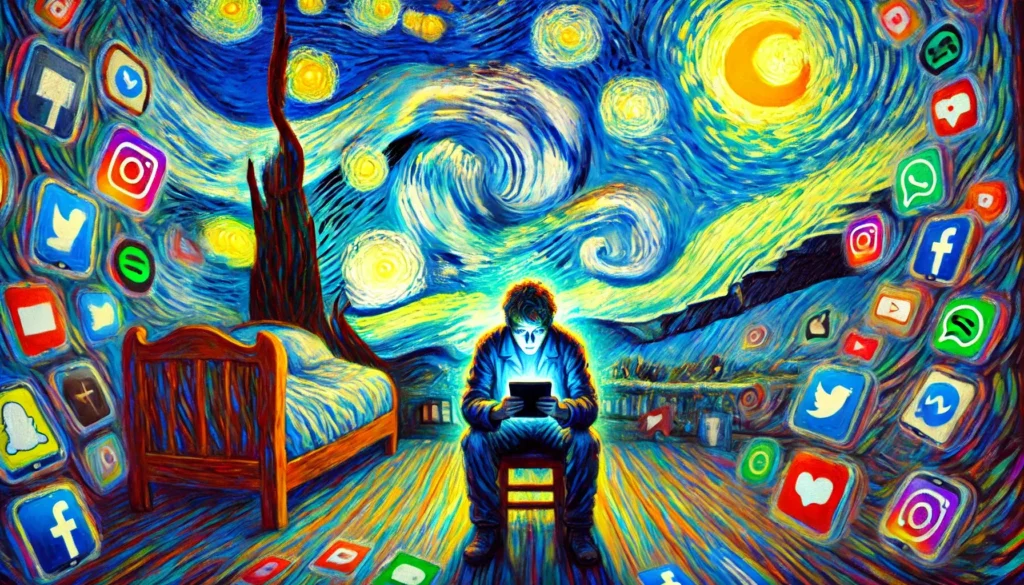This may appear to be an odd topic with respect to substance abuse among young adults, yet consider this: In today’s digital world, social media is woven into nearly every aspect of a young adult’s life. Whether connecting with friends and finding new communities or staying informed on global trends, platforms such as Instagram, TikTok, Snapchat, and Facebook play a central role in shaping behavior, identity, and perception. While these platforms offer significant benefits, they can also pose potential risks, particularly concerning substance abuse and addiction among those who might be vulnerable. Take a look at this content; understanding the influence of social media on addiction is crucial for parents, caregivers, educators, and young adults themselves.
The Dark Side of Social Media: Influencing Substance Use and Addiction
- Normalization and Glamorization of Substance Use
Social media often creates curated realities that promote unhealthy behaviors, including substance use. Influencers, celebrities, and even peers, post images or videos that romanticize drug and alcohol consumption. Images of people partying, drinking, or engaging in drug use while also appearing happy may contribute to the normalization of these behaviors, making them appear socially acceptable or even glamorous. For impressionable young adults seeking validation or belonging, this can lead to dangerous experimentation.
- Peer Pressure in the Digital Age
Traditional peer pressure now extends into the digital realm. On platforms like Snapchat and TikTok, anyone young can be easily exposed to challenges or trends that promote risky behaviors, including substance use. The fear of missing out (FOMO) and the desire for likes, comments, or shares can amplify the inclination to conform, even if it means engaging in behaviors that might otherwise be avoided. This digital peer pressure may exacerbate feelings of anxiety, inadequacy, and isolation, creating a vicious cycle that can lead to self-medicating behaviors. For young adults still seeking engagement with their ‘tribe’ or community, the lure can be especially difficult.
- Targeted Advertising and Influencer Marketing
While traditional advertising has always sought to capture young people’s attention, social media has refined the art of targeted marketing. Companies can now direct ads promoting alcohol, nicotine products (such as vapes), and other substances specifically to young adults based on their interests and online activity. Additionally, social media influencers often serve as unofficial promoters of substance use, even when indirectly. The unchecked promotion of products, from alcoholic seltzers to vaping devices, puts young users at risk by subtly pushing substance use as desirable.
- Impact on Mental Health
Social media’s influence on mental health cannot be understated. Excessive use of these platforms is linked to increased rates of anxiety, depression, and low self-esteem among young adults. These mental health issues can create a gateway to self-medicating behaviors, leading to substance abuse or worsening existing addictions. Cyberbullying, unrealistic beauty standards, and a constant comparison to others all exacerbate these struggles. When a young adult turns to substances as a coping mechanism, they may become trapped in a cycle of addiction.
- Access to Information about Substances
On the positive side, social media can be an educational tool. However, it can also provide harmful information about substances, including where to purchase drugs, how to use them, and how to hide usage from family or authorities. Such content can inadvertently encourage experimentation, especially when it appears in closed or private groups that young adults can easily access.
Harnessing Social Media for Positive Change
There is, however, a positive side to explore here, as well; despite its potential to exacerbate substance use, social media also holds incredible power for positive influence. By focusing on the following strategies, individuals and organizations can use these platforms to combat addiction and promote healthier behaviors.
- Promoting Real Stories of Recovery
Sharing authentic stories of recovery and resilience can provide hope and inspire young adults facing addiction. By amplifying the voices of individuals who have overcome their struggles, we can create a culture where seeking help is normalized and supported. These stories remind young adults that they are not alone in their battle, reducing stigma and encouraging them to seek help.
- Building Supportive Communities
Social media provides an opportunity to build and foster supportive online communities. Recovery groups and mental health forums offer a space for individuals to connect, share experiences, and access resources. Platforms such as Facebook have private groups dedicated to mental health support and substance recovery, offering young adults a safe environment where they can receive encouragement and guidance. In fact, you may have found this content on one such group.
- Positive Influencer Campaigns
Organizations and influencers have a role to play in reversing the glamorization of substance use. By partnering with influencers who have a genuine interest in promoting mental well-being and substance-free lifestyles, we can reach young adults more effectively. Campaigns focused on self-care, positive mental health practices, and alternatives to substance use can shift social norms and challenge harmful behaviors. In fact, you can see how Gregg’s Gift supports these efforts here.
- Educational Content and Awareness Campaigns
Social media can be a powerful educational tool. By producing engaging, factual, and relatable content about the risks of substance abuse, we can raise awareness among young adults. Interactive posts, videos, and live Q&A sessions led by experts can help dispel myths and equip users with the knowledge to make informed decisions. Campaigns focused on understanding the link between mental health, addiction, and self-care practices can empower young adults to take control of their lives.
- Promoting Digital Wellness
Encouraging mindful and healthy social media use can reduce negative mental health impacts, decreasing the likelihood of substance abuse. Digital detox challenges, reminders to take breaks, and creating intentional content consumption habits can improve mental health outcomes for anyone, and especially, for young adults. To achieve this, organizations should partner with social media platforms to develop and promote these tools.
- Collaborating with Platforms
Social media companies must be held accountable for their role in shaping behaviors. By collaborating with these platforms, we can implement measures to minimize exposure to harmful content. Much like the decades-old Surgeon General’s warning on cigarette packs, this could include content warnings, blocking ads promoting substance use to minors, and using algorithms to highlight supportive and recovery-oriented content.
The Role of Families and Communities
It can’t be stressed enough: families, educators, and communities are essential to guide young adults through the challenges posed by social media, just as they provide guidance through other life challenges and decisions. Open conversations about the impact of social media on mental health and substance use are critical. Encouraging young adults to evaluate what they see online, teaching digital literacy, and fostering environments where they feel valued and heard can make a profound difference.
Conclusion
Social media can either contribute to substance abuse or serve as a tool for recovery and positive change. By acknowledging its influence, addressing its potential harm, and harnessing its positive power, we can work together to reduce addiction among young adults. The responsibility lies with all of us—social media platforms, influencers, organizations, parents, and communities—to create a safer, healthier online world. Together, we can help young adults navigate the complexities of the digital age and encourage them to live substance-free lives filled with purpose and hope. Gregg’s Gift partners with agencies whose roles contribute purposefully towards substance abuse prevention, education, recovery, support and resources of all kinds. We’re here to help so don’t ever hesitate to ask for it.

